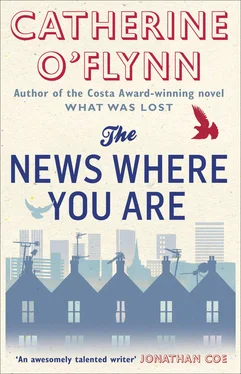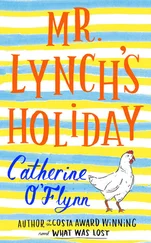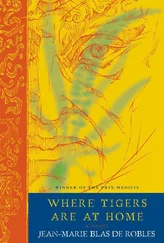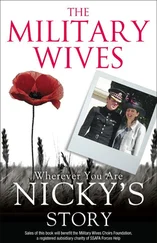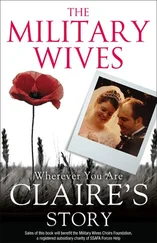‘Of course you don’t, Frank. Cling stubbornly to them, keep them as a penance, a constant reminder of how you fucked up. This explains those shoes with the rubber soles you insist on wearing for work. You’re punishing yourself.’
‘No, I’m punishing you with those shoes — that’s my only reason for wearing them. Okay, some mistakes can be erased, but I think to wipe out all traces of the past is wrong. Do you remember the mechanized car park they built in the original Bull Ring?’
‘Course I remember it. I was one of the few people to use it and get out alive. You drove into a lift thing and then left the car there — the magic of technology did the rest, transporting the car to a space. Total ease and comfort for the motorist, until it broke down on the second day entombing that last Ford Anglia there for the next twenty years.’
‘That’s what I like about this city.’
‘What? That it’s crap and everything fails?’
‘No. That it has these ridiculous dreams, that it always tries to reinvent itself, to be the city of the future, but then always changes its mind about what the future should be. I love the little glimpses you catch of the old dreams, the old ideas of what Utopia should be. I think if you get rid of all of them, no matter how embarrassing or naive they are, then you lose something essential about the place.’
‘Is that how you feel about your father’s buildings? I mean behind all your talk of their architectural significance, is it just that you think they’re quaint reminders of what used to seem like good ideas?’
Frank shrugged. ‘I don’t know. It’s different when it comes to my father. I know how hard he worked on this building, on all his buildings. He built them for the future. They were his legacy.’ He turned back now and looked at Rhombus House and sighed. ‘You know it’s an incredibly beautiful building inside? The people who worked there loved it.’
Phil smiled. ‘You’ll never understand, will you? It’s only the outside that’s visible. That’s all people care about, mate.’
Looking back, Frank thought he did understand now. He’d had a hard schooling. Worcester House, the last but one of his father’s public buildings remaining, was due to be demolished the following week. Frank knew that even if all his father’s buildings were torn down, his memory would live on in him, but he knew also that such an intangible legacy would have meant nothing to his father.
His mother walks in from the kitchen carrying a tray. Francis studies her closely. He looks at her mouth, her eyes, the line of her shoulders and he knows that today is an orange day. As if to confirm it, she looks at him and flashes a wide smile.
He was very little when he decided that his mother had orange days and purple days. Now he’s more grown-up he could use other words to describe the contrast, but the notion of colours has stuck and nothing else seems quite right.
‘Well, are we ready for the party?’
He grins and nods.
On purple days his mother pulls plants up in the garden, she looks out of the window at nothing in particular for impossibly long stretches and speaks to her sister in a low voice on the telephone for hours. Sometimes she is cross with Francis whilst at others she doesn’t seem to notice he’s there at all.
On orange days she tells stories, she invents games, she takes Francis on expeditions and most of all she makes him laugh.
She sets the tray down on the coffee table and Francis surveys the assortment of crisps and sweets, which his mother always inexplicably refers to as ‘rocks’. They have been carefully placed as usual in an eccentric selection of crockery. A few Smarties in an egg cup, a heap of cheese snips in a gravy boat, assorted crisps laid out on best plates. She and Francis refer to this arrangement as ‘a party’, though no other guests are ever invited.
Francis’s father is out for the evening attending something called a consultation meeting and when Francis asked his father explained what that was, but the explanation seemed to pass straight through his ears. Francis doesn’t know if his father knows about the little parties that sometimes happen in his absence. He suspects that Douglas would not approve of such indulgence and crockery transgression.
Francis sits in his usual place, perched on something his mother calls ‘a pouffe’. Sometimes when she rests her feet on the pouffe while reading a book, Francis notices his father’s eyes narrowing slightly in the direction of the pouffe, which seems to offend him. The pouffe is black and white and made of leather or maybe plastic. When he was very little, Francis used to pretend it was the driver’s seat of a sports car and use a plate as a steering wheel whilst revving away noisily. Now, though, he is older and more sophisticated and is happy enough to sit and just imagine the car around him whilst enjoying the goodies on the table in front of him.
His mother has put fizzy orange pop in the teapot and now holds the teapot high to pour it into their teacups. Francis knows what’s coming next.
His mother puts on a funny high voice: ‘More tea, vicar?’
‘Yes, please,’ Francis replies, in what he thinks is a vicar’s voice.
His mother then pretends not to notice the teacup that Francis holds out, and with a shocked expression says: ‘Oh, vicar, not from the spout! Why, you’re no better than a filthy chimp!’
And the idea of a vicar drinking orange pop straight from the teapot never fails to make Francis laugh so much he falls off the pouffe.
Francis wonders if the reason he thinks of his mother’s moods as purple and orange might be something to do with her clothes. He remembers a purple dress she used to wear years ago. The fabric was shiny and patterned and the noise it made as it rubbed against her tights used to make Francis’s teeth feel horrible. Around the same time she used to wear a bright orange polo-neck jumper made of soft, fluffy wool that he loved to press his face against when she picked him up.
His mother has more purple days now. When he was little, they were very rare — small dark clouds that would drift across an otherwise clear sky. Now, though, the orange days seem rarer. He has noticed too that sometimes what starts as an orange day can suddenly become a purple day for no apparent reason. Last Saturday his father worked in his study all day. At first his mother seemed fine, but by lunchtime Francis noticed that she was banging pans more loudly on the hob than seemed necessary and then she forgot to put chocolate powder in his milk and shouted at him when he asked about it. He has noticed that a purple day never changes into an orange one.
They sit now at the coffee table, he on his pouffe, his mother kneeling on the floor, munching their way through the smorgasbord and listening to records. Maureen has piles of records from her teenage years and early twenties. She says they are rock-and-roll records and Francis quite likes them too. He hears the sound of the arm moving mechanically and lowering the needle to the record. There are a few moments of hiss and mild crackle before he recognizes the song about the thin girl called Bony Maronie.
His mother laughs: ‘Do you remember when I tried to teach you to dance?’
‘Which time?’
‘Any of them — they always ended the same way — us in a heap on the floor.’
Francis smiles.
‘You’re made of elastic. I’ve never known a floppier dancier. It was like dancing with an eel. Nothing like your father.’
Francis looks at her. ‘Dad doesn’t dance.’
‘No, of course he doesn’t now, but he used to, when I first met him. He was a marvellous dancer. He took it very seriously.’ Her eyes flicker. ‘Well — you can imagine.’
Читать дальше
